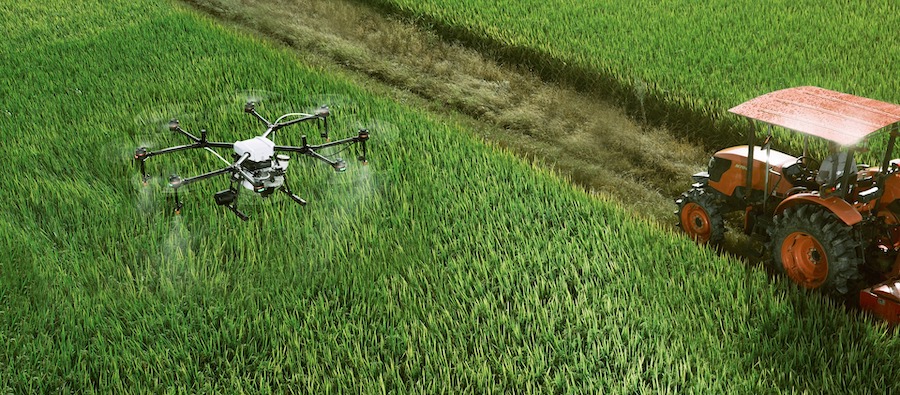Dr. Viola Prifti, Postdoctoral Researcher at HTW BerlinDr. Viola Prifti explores the transformative potential of smart farming practices and how open data can help overcome ownership barriers.
Transformation is at the heart of agriculture. Hunting, domestication of wild crops, the Green Revolution and most recently agriculture 4.0, are all phases of agricultural evolution.
Yet our food system remains fragile, and it is clear that achieving food security for all in line with the Agenda 2030 goals demands further transformation towards sustainable agriculture.
Smart farming, which uses data-driven methods to better manage agricultural production, can help meet this aim. Using big data paired with emerging artificial intelligence technologies such as remote sensing, automatic control and yield monitoring, smart farming technologies collect, analyse and use data to allow farmers to be more efficient, profitable and environmentally friendly.
This data-driven approach can also be used to monitor and track perishable goods, and has proved its worth in dealing with transit delays caused by Covid-19 counter-measures. Smart farming tools hold potential for farmers in the Global North and South alike, as shown by the iCow social media platform from Kenya, which connects farmers with stakeholders via SMS.
Data ownership
Smart farming is characterised by a complex data system: farmers generate a wealth of raw data through their resources and personal labour; agronomy companies extract additional value from processing this data; smart farming consultants, government agencies, retail agronomists and seed companies also act as data collectors.
Given the lack of specific legislation on who owns smart farming data, ownership is defined through contracts. But farmers often lack the negotiating power and skills to advance their own interests.
While raw data cannot be owned, once it has been processed or arranged as a database, it may be given copyright protection and thereby become a controlled asset. Intellectual property rights may also apply to data and related devices, and define ownership to a certain extent.
These and other types of intellectual property rights, such as patents and trade secrets, grant exclusive rights to the owners of data-related devices. So as they no longer own the data they have produced, farmers may miss out on opportunities to capitalise on the data they have generated, which is ultimately sold back to them.
As a result, farmers have little incentive to adopt smart farming practices. To ensure it is a sustainable solution that benefits farmers alongside those gathering and analysing their data, innovations in smart farming need to be more responsible and inclusive.
Towards open data
The EU’s proposal to modernise its Common Agricultural Policy – a system of agricultural subsidies and other programmes – calls for “open, collaborative systems”. Indeed, the complex digital ecosystem required for smart farming thrives on data exchange, openness and inclusivity rather than closed proprietary systems.
A shift from data ownership to open data is already evident in EU agricultural policy through a variety of projects that support collaborative networks to access data, such as the Fispace project, which enables internet-based solutions to collaborative agri-food business networks. A similar initiative in the private sector is the Yara International and IBM partnership to create the “Open Farm & Field Data Exchange” data-sharing platform.
Yet although open collaborative platforms hold great potential for sustainable business and profitability, alone they are not enough to promote the adoption of smart farming at scale or to guarantee the protection of public interests, such as food safety or biodiversity.
The outbreak of Covid-19 has exposed the need to build resilient and sustainable agricultural systems, but the law is still lagging behind. While developing and adapting specific laws may require more time, there is an urgent need for guidance on open smart farming data to guarantee agri-innovation and sustainability.
Private initiatives such as OpenAG Data Alliance and AGGateaway are already developing common data protocols, but the focus seems to be on crops developed by the stakeholders involved, not necessarily on the 64 most important crops for human consumption.
The role of governments in enabling partnerships and incentivising smart farming for the public good is of utmost importance now. Guided by values such as common good, inclusivity and transparency, they can set the path for a more sustainable future.
The author acknowledges that four paragraphs of this post are based on a working paper on smart farming and data ownership written in collaboration with Dr. Argyro Karanasiou.



